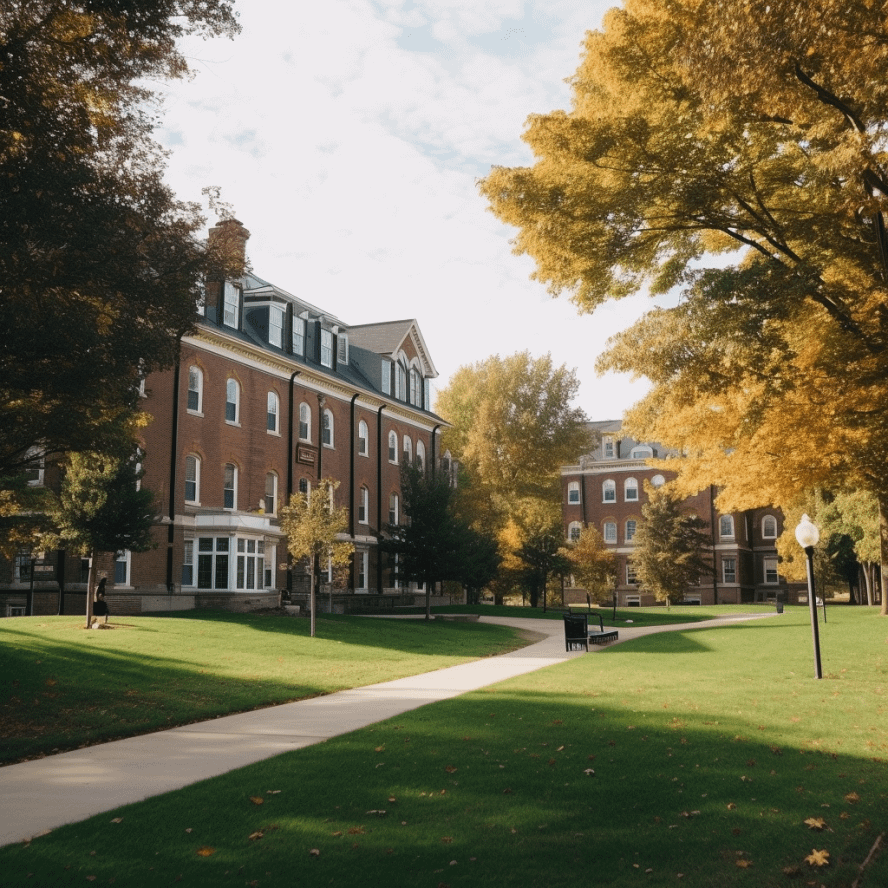Campus sexual assault is a serious crime that is vastly under-reported and under-prosecuted. If you have recently experienced sexual assault at a college campus, please know that you’re not alone. You have rights, and there are people who can help you.
Understanding Sexual Assault on a College Campus
Sexual assault involves any sexual activity that is performed without mutual consent. Understanding consent is important for a safe sexual experience – if any sexual activity makes you or your partner feel uncomfortable, you stop. It does not matter whether a party thinks they had consent or had consent before. It is also irrelevant whether the people involved are in a romantic partnership or understanding. Consent must be voluntary and specific to each sexual act; it cannot be assumed or implied.
It is also essential to note that consent cannot be given if a person is under the influence of alcohol or drugs, as their judgment and ability to provide informed consent may be impaired. Further, minors are not legally recognized as having the ability to provide valid consent for sexual activities.
What is Title IX?
Title IX is a federal law prohibiting sex discrimination in education programs or activities that receive federal funding. It includes protections against sexual violence, such as:
- Sexual battery
- Rape, including penetration
- Oral sex
- Sodomy
- Any type of sexual misconduct
- Any other nonconsensual sexual act
Under Title IX, colleges and universities are required to respond promptly and effectively to reports of sexual violence and offer support to survivors. Survivors can review their Title IX rights and seek assistance from campus advocates or campus sexual assault attorneys.
The Clery Act
The Clery Act, also known as the Jeanne Clery Disclosure of Campus Security Policy and Campus Crime Statistics Act, is a federal law that requires colleges and universities to disclose information about crime in and around their campus, such as on-campus student housing or public property within the campus.
The Campus Save Act
The Campus SaVE Act is a federal law that addresses campus sexual violence, date/acquaintance rape, intimate partner violence, stalking, and more. Colleges and universities are mandated to have policies and procedures in place to prevent and respond to these forms of violence.
Who is a Campus Security Authority (CSA)?
A CSA is a designated individual responsible for student and campus activities. CSAs play a crucial role in responding and reporting to campus crimes, including sexual assault. CSAs may include campus police officers, security personnel, deans, coaches, and other campus administrators, all of whom serve as a resource for survivors of campus sexual assault.

Legal Rights of Student Sexual Assault Survivors
As a student sexual assault survivor, please remember you have legal rights. Under Title IX, colleges and universities are required to investigate reports of sexual violence in order to gather evidence, interview involved parties, and determine appropriate disciplinary actions. Survivors of sexual assault have the right to reach out to a campus advocate to discuss their rights under Title IX and the Clery Act.
A school sexual abuse attorney can help advise you of your rights, including rights under Title IX:
- Changes in your living arrangements,
- Restraining or no-contact order,
- Changes to transportation and working situations, and more.
Resources for Survivors of Campus Sexual Assault
Sexual assault is an invasive crime that affects people differently. The aftermath of a sexual assault can be overpowering for a survivor. No matter how someone may react outwardly, they need a lot of support to heal and move forward in their lives.
Mental Health
Mental health professionals can provide crucial support through therapy, such as trauma-focused CBT and EMDR. Organizations like the RAINN Crisis Center offer helplines and resources specifically designed for handling sexual trauma.
Financial
Costs from doctor appointments, psychiatric care, physical therapy, and other bills can feel overwhelming when dealing with the stress from a traumatic sexual assault. Financial compensation from a civil lawsuit can help survivors access the services they need while they focus on healing.
Legal
Many campus sexual assault survivors find it empowering to file a civil sexual assault lawsuit against the perpetrator and a negligent third party. A sexual assault lawyer practicing in your state can help you understand your legal options and work with you to achieve them.
Remember, healing is a journey, and you have the right to take the steps that feel best for you.
How to Hold Perpetrators of Campus Violence Accountable
The trauma of campus sexual assault can leave a survivor feeling powerless and violated. Perpetrators of campus violence should pay for what they’ve done. An experienced assault attorney can provide you with the guidance and support necessary to navigate the complexities of the legal process. A good lawyer understands the sensitive nature of your case and can offer empathetic legal assistance every step of the way.
Can You Sue for Sexual Assault?
Yes, it is possible to sue for sexual assault. In a civil lawsuit, depending on the specifics of your case, you can hold the perpetrator and a negligent third-party responsible for the crime. Potential third parties that may be held liable in a civil lawsuit include:
- College or university: if the institution failed to adequately respond to your reports of sexual assault, provide a safe campus environment, or properly train its staff and security personnel
- Campus security or law enforcement: if the campus security or law enforcement personnel was negligent in preventing or responding to the assault
- Fraternities or sororities: if the assault occurred within a fraternity or sorority house, and it can be shown that the organization failed to take reasonable steps to prevent or address the assault
- Property owners or managers: if the assault occurred in an off-campus housing or a location owned or managed by a third party, such as a landlord or property management company, then they may be held liable if they failed to provide adequate security measures or address known safety concerns
- Individuals who facilitated the assault: if there were people who knowingly facilitated or enabled the assault, such as by providing date-rape drugs, they may also be held liable for the assault
What Kind of Lawyer Do I Need if I Was Assaulted on a College Campus?
If you have been assaulted on a college campus and are considering pursuing a civil lawsuit, you should contact a personal injury attorney to help provide legal representation and support.
Many sexual assault attorneys also handle a range of campus sexual assault cases, including those involving sports. In such cases, it may be beneficial to consult with an athlete sexual abuse attorney who has experience in handling sports-related sexual abuse cases. Remember, sexual assault cases can get complicated – there may be difficulty in obtaining evidence, the defendant may countersue for defamation, or any other issue may arise. This is why it is crucial you hire an experienced campus sexual assault attorney to represent your interests.
How Much Can You Sue for Campus Sexual Assault Cases?
The amount of compensation you may receive after a campus sexual assault will depend on the specifics of the lawsuit. Several factors influence the final amount, such as the extent of damages suffered, the level of third-party negligence involved, and the number of people affected.
When choosing an attorney, look for someone who’s both experienced and understanding of the sensitive nature of a sexual assault lawsuit.

Statute of Limitations on Sexual Assault
Statutes of limitations for sexual assault cases depend on whether it is a civil or a criminal matter, as well as the state where the case is filed. Many states have extended the statute of limitations for civil child sexual assault lawsuits. A sexual assault lawyer can help you understand the statute of limitations in your state and ensure your case is filed within the required timeframe.
Campus Sexual Assault Statistics: FAQs
1. How many college students get sexually assaulted?
According to statistics from Know Your IX, a national survivor-run, student-driven campaign, approximately one in five women and one in 16 men are sexually assaulted while in college. In addition:
- 90% of college sexual assaults are by a known assailant
- Gay and bisexual men are ten times more likely to experience sexual violence than heterosexual men
- 46% of bisexual women are sexually assaulted, compared to 17% of heterosexual women
- 21-55% of Asian women report intimate partner physical or sexual violence
- 33% of multiracial women, 22% of black women, and 14.6% of Hispanic women experience sexual assault
- People with disabilities are three times more likely to be targets of sexual assault
2. What is the Red Zone?
The Red Zone refers to the beginning of the academic year through Thanksgiving break when sexual assaults on college campuses spike, and the risk of sexual violence is exceptionally high:
- Over 50% of campus sexual assaults happen between August and November
- During their first two semesters in college, students are at a greater risk of sexual assault than during their remaining time in college
It’s vital to raise awareness about the Red Zone campus violence statistics and take proactive measures to prevent sexual violence during this time.
3. How many college sexual abuse cases go unreported?
Unfortunately, a disturbingly large number of college sexual abuse cases go unreported – more than 90% of sexual assault survivors on college campuses do not report the assault. This highlights the need for increased awareness of sexual assault prevention as well as post-assault support for college students.
Transform your pain into your greatest strength
Talk to a Compassionate Campus Sexual Assault Lawyer
Healing from sexual violence is a lengthy process, and it doesn’t happen overnight. A campus sexual assault lawyer with experience in handling campus sexual assault lawsuits can be an important step toward empowering yourself. Contact us to learn more about how we can support the healing journey.
